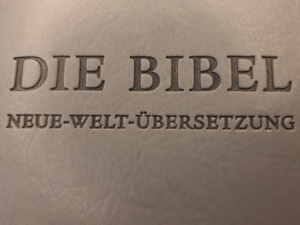Who leads Jehovah’s Witnesses? Who is the head of Jehovah’s Witnesses, What is the governing body of Jehovah’s Witnesses?

Who is the Head of Jehovah’s Witnesses? Who is the Chief of Jehovah’s Witnesses? Who leads Jehovah’s Witnesses or who is the leader from Jehovah’s Witnesses? Is there any Leadership at Jehovah’s Witnesses? What is the governing body of Jehovah’s Witnesses?
Do Jehovah’s Witnesses even have a head, such as a pope or a patriarch? Who takes the lead in Jehovah’s Witnesses?
The leadership, the boss or leader from Jehovah’s Witnesses is different from other religions
There are many important differences between Jehovah’s Witnesses and other religions. One difference concerns the leadership (or management, guidance, government, administration, presidency, chairmanship) of Jehovah’s Witnesses.
Jehovah’s Witnesses are not governed or led by an individual. Such as at the Catholic Church the Pope. Or like a patriarch in the Orthodox Church. And not from a specific prophet or any other individual person. There is also no Imam, as in Islam or in the Islamic community. And also no Dalai Lama or Ganden Thripa, as in Buddhism.
Who then leads the Christian religious community of Jehovah’s Witnesses? Who is the boss of Jehovah’s Witnesses? Is there even a leader or a head like in the Catholic Church, for example?

The leader of Jehovah’s Witnesses is Jehovah God and Jesus Christ
First and foremost, Jehovah’s Witnesses are guided by Almighty God, Jehovah. Or through the word he inspired, the Bible. Which Jehovah’s Witnesses view as God’s Word.
And through Jesus Christ. Who, according to the Bible, was appointed by Jehovah God as leader and king. Before a Jehovah’s Witness is baptized as a Jehovah’s Witness, he has thoroughly examined the Bible. And knows exactly what Jehovah God and Jesus Christ want or do not want. Before being baptized, a Jehovah’s Witness knows the guidelines, that Jehovah God has given in his Word, the Bible, through laws, but also through principles.
Jehovah’s Witnesses are guided by God’s Word, the Bible

Jehovah’s Witnesses are convinced, that Jehovah God inspired the Bible. With guidelines, which make happy. If you follow them. So that you can live happily today. And with guidelines, that leads to everlasting life. As Jesus Christ called it, “To find the way to life…” (The Bible, Matthew 7:13,14).
But of course there are also a few things to be decided that are not regulated in the Bible. For example, in relation to publications or the preaching service of Jehovah’s Witnesses. How do Jehovah’s Witnesses do it?
Jehovah’s Witnesses are guided by the Bible when it comes to leadership
Here too, Jehovah’s Witnesses follow what they find in the Bible. When it comes to leadership, Jehovah’s Witnesses follow what Jehovah God has inspired in his Word, the Bible. This is also why Jehovah’s Witnesses do not have a single boss, pope, prophet, president, or any other individual who takes charge or leadership. Instead, Jehovah’s Witnesses follow the example of Christians in the first century. In the first century, there was no single person who made the decisions among the early Christians. When it came to something that wasn’t clearly regulated in the Bible. But what was it like back then? And who is the faithful and discreet slave of whom Jesus spoke?
Jesus Christ prophesied of a “faithful and discreet slave.” Who is the faithful and discreet slave?
Jesus Christ has promised to provide his followers with timely spiritual food. He prophesied: “Who really is the faithful and discreet* slave whom his master appointed over his domestics, to give them their food at the proper time?” (The Bible, Matthew 24:45).
Who is this faithful and discreet slave?
The faithful and discreet slave is the organ , which Jesus Christ uses today to provide his true followers with spiritual food.
The faithful and discreet slave: small group of anointed Christians who form the Governing Body
In the Watchtower magazine (from July 15, 2013), published by Jehovah’s Witnesses, there is a good explanation given as to who the loyal and understanding slave is. According to the article in the Watchtower the “Faithful and Discreet Slave” is a small group of Spirit-anointed Christians who form the Governing Body. The Governing Body makes important decisions together.
The article reads in part: “In keeping with Jesus’ pattern of feeding many through the hands of a few, that slave is made up of a small group of anointed brothers who are directly involved in preparing and dispensing spiritual food during Christ’s presence. Throughout the last days, the anointed brothers who make up the faithful slave have served together at headquarters. In recent decades, that slave has been closely identified with the Governing Body of Jehovah’s Witnesses. Note, however, that the word “slave” in Jesus’ illustration is singular, indicating that this is a composite slave. The decisions of the Governing Body are thus made collectively.”

The Governing Body of Jehovah’s Witnesses is patterned after the example of the early Christians
The Governing Body of Jehovah’s Witnesses follows the pattern of the “apostles and elder men” in Jerusalem who were appointed in the first century for the successors of Jesus Christ (real Christians) made important decisions. Members of the Governing Body of Jehovah’s Witnesses are not the leaders of Jehovah’s Witnesses. Like the Governing Body of the first Christians in the first century. None of them is considered more important than the other. That is why the chairman at meetings of the governing body changes every year.
Governing Body of Jehovah’s Witnesses: not the leaders of Jehovah’s Witnesses. But Jesus Christ
The individual members of the Governing Body of Jehovah’s Witnesses do not see themselves as leaders of Jehovah’s Witnesses. But as “house servants” who, like all other Jehovah’s Witnesses, are spiritually fed by the faithful and discreet slave. And submit to his supervision. All members of the Governing Body of Jehovah’s Witnesses acknowledge that Jehovah God has entrusted the leadership of the Christian congregation to Jesus Christ. For this reason, Jehovah’s Witnesses use the Bible as the guideline for all decisions (Ephesians 5:23; 1 Corinthians 11 :3).
What are the responsibilities of the Governing Body of Jehovah’s Witnesses?
But what is the task of the Governing Body of Jehovah’s Witnesses? What decisions are made that are not clearly regulated in the Bible? The Governing Body of Jehovah’s Witnesses has two main functions. Firstly, to oversee the preparation of publications, meetings and training courses. And on the other hand, to organize the worldwide activities of Jehovah’s Witnesses, to provide guidelines for the preaching work and to monitor the use of donations.
The Governing Body of Jehovah’s Witnesses is not inspired by God
The Governing Body has been given the task of giving (spiritual) food at the right time by Jesus Christ according to the prophecy from the Bible book of Matthew (Matthew 24:45). However, the Governing Body of Jehovah’s Witnesses, which forms the faithful and discreet slave, does not think that they are inspired from God. Instead, members of the Governing Body of Jehovah’s Witnesses recognize that they can make mistakes. This is why the Governing Body of Jehovah’s Witnesses can make mistakes in teaching matters and in organizational instructions.
But history shows, that the Governing Body of Jehovah’s Witnesses are willing to except the guideline from Jehovah’s active force (his Holy Spirit). This is why Jehovah’s Witnesses enjoy more and more spiritual light from Jehovah God. Like foretold in the Bible, in the Bible book of Proverbs, chapter 4, verse 18: “But the path of the righteous is like the bright morning light. That grows brighter and brighter until full daylight.”

Who is part of the governing body of Jehovah’s Witnesses?
In October 2024 the governing body included Kenneth Cook, Gage Fleegle, Samuel Herd, Geoffrey Jackson, Jody Jedele, Stephen Lett, Gerrit Lösch, Jacob Rumph, Mark Sanderson, David Splane and Jeffrey Winter. The Governing Body of Jehovah’s Witnesses has its headquarters in the world headquarters of Jehovah’s Witnesses in Warwick (New York, USA).
Organization of the Governing Body of Jehovah’s Witnesses
There are various committees that assist the Governing Body of Jehovah’s Witnesses in their duties. Each member of the Governing Body of Jehovah’s Witnesses serves on at least one of these committees. Each committee has a different area of responsibility.
Helpers of the Governing Body of Jehovah’s Witnesses
The Governing Body committees are supported by responsible Jehovah’s Witnesses. Helpers who have experience and skills in the relevant area. And also be present at the weekly meetings of the respective committee. These Helpers of the Governing Body can provide background information and recommendations. But they don’t have the authority to make decisions. They implement committee decisions. And keep an eye on the results and progress. They may also be assigned by the Governing Body to visit certain regions of the world. Or to deliver parts at special events. This could be a Gilead graduation ceremony or annual meetings. A list of the helpers of the various committees can be found on the official website of Jehovah’s Witnesses, JW.org.
Committees and their helpers
2024, the following committees with the following helpers were listed on the JW.org page above:
Coordinators’ Committee:
• John Ekrann
• Paul Gillies
• Troy Snyder
Personnel Committee:
• Gerald Grizzle
• Patrick LaFranca
• Daniel Molchan
• Mark Scott
• Ralph Walls
Publishing Committee:
• Robert Butler
• Harold Corkern
• Gajus Glockentin
• Donald Gordon
• Robert Luccioni
• Alex Reinmueller
• David Sinclair
Service Committee:
• Gary Breaux
• Joel Dellinger
• Betty Georges
• Anthony Griffin
• Seth Hyatt
• Christopher Mavor
• Baltasar Perla
• Jonathan Smith
• William Turner
• Leon Weaver
Teaching Committee:
• Michael Banks
• Ronald Curzan
• Kenneth Flodin
• William Malenfant
• Mark Noumair
• David Schafer
Writing Committee:
• Nicholas Ahladis
• Per Christensen
• Robert Ciranko
• Kenneth Godburn
• James Mantz
• Izak Marais
• Clive Martin
• Leonard Myers
• Gene Smalley
• Hermanus van Selm